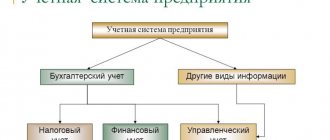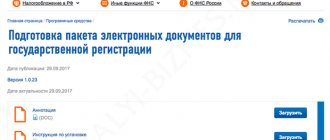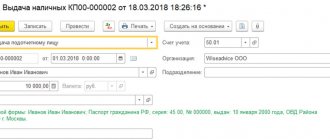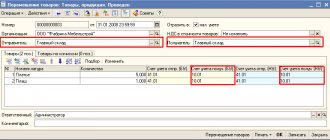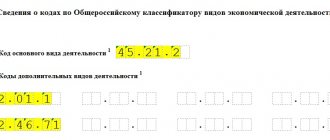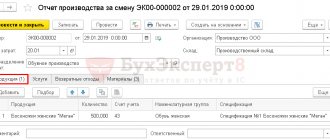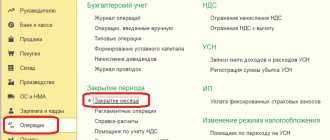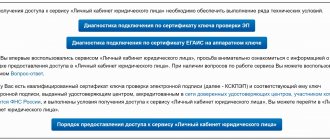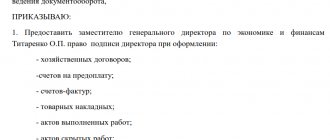Should an individual entrepreneur use the simplified tax system “income” to maintain primary documents?
Why should an individual entrepreneur who is on the simplified tax system “income” keep documents if a bank account statement is considered proof of income? The fact is that the tax office has the right to request primary documentation about the transaction, payment for which was received in the individual entrepreneur’s bank account. And most importantly, entries in the book of income and expenses (which is mandatory for individual entrepreneurs on the simplified tax system) are made on the basis of a primary document (its details must be indicated).
The tax office has the right to demand documents for 3 years after the closure of the individual entrepreneur. And for failure to provide primary documents, individual entrepreneurs face a fine. That is, an individual entrepreneur using the simplified tax system must maintain primary documents to confirm business transactions. For example, if the tax office mistakenly issued a demand for non-payment of tax, you will be able to provide a payment order with a bank mark as evidence.
Individual entrepreneurs need to collect and store all documentation that is relevant to the activity. Primary documents may be needed in case of legal disputes, for reconciliations with suppliers and buyers. In case of failure to fulfill contractual obligations, the individual entrepreneur has the right to sue the counterparty, and for this it is necessary to provide all documentation on the transaction.
We recommend reading: How to open an individual entrepreneur yourself - step-by-step instructions for beginners.
GLAVBUKH-INFO
ÂThe individual entrepreneur applies UTII. A tax audit is carried out against the counterparty of this entrepreneur. The tax inspectorate requested from the entrepreneur primary documents relating to the activities of the audited counterparty. No documents were presented. Is an individual entrepreneur obliged to keep primary records and store primary documents (and what is the storage period)? What liability is provided for failure to provide primary documents to the Federal Tax Service Inspectorate requested as part of a counter-inspection? On this issue, we adhere to the following position: An individual entrepreneur applying the taxation system in the form of UTII: - is not required to keep primary records; - is obliged to store primary accounting documents for the period determined on the basis of Part 1 of Art. 29 of the Federal Law of December 6, 2011 N 402-FZ “On Accounting”, only if he maintains accounting records; - in case of refusal to submit documents actually available to him with information about the taxpayer being inspected, on the basis of a legal requirement of the tax authority, he may be held accountable on the basis of clause 2 of Art. 126 of the Tax Code of the Russian Federation. Rationale for the position: Maintaining primary accounting by an entrepreneur When deciding on the need to maintain accounting records, individual entrepreneurs must be guided by the norms of the Federal Law of December 06, 2011 N 402-FZ “On Accounting” (hereinafter referred to as Law N 402-FZ) (clause 4, part. 1 Article 2 of the said law). So, on the basis of clause 1, part 2, art. 6 of Law N 402-FZ, individual entrepreneurs applying the taxation system in the form of UTII, keeping records of physical indicators characterizing a certain type of business activity for the purposes of Chapter 26.3 of the Tax Code of the Russian Federation, may not keep accounting records, which is confirmed, for example, by letters from the Ministry of Finance of Russia dated 02.03. 2015 N 03-11-11/10791, dated 10/24/2014 N 03-11-11/53885, dated 01/31/2013 N 03-11-10/1925. According to Part 1 of Art. 9 of Law N 402-FZ, each fact of economic life is subject to registration with a primary accounting document. Law No. 402-FZ does not contain direct rules that relieve individual entrepreneurs who apply the taxation system in the form of UTII from the obligation to document the facts of economic life with primary accounting documents. However, the absence of such an obligation, in our opinion, follows from the systemic relationship of clause 1, part 2, art. 6 and part 2 of Art. 1 of Law N 402-FZ, which defines accounting as the formation of documented, systematized information about objects provided for by Law N 402-FZ, in accordance with the requirements established by Law N 402-FZ, and the preparation of accounting (financial) statements on its basis. In other words, the exemption of individual entrepreneurs from accounting also implies their exemption from the formation of documented information about the facts of economic life (Clause 1, Article 5 of Law No. 402-FZ), that is, from the preparation of primary accounting documents. Thus, in our opinion, the norms of Law N 402-FZ do not require individual entrepreneurs using the taxation system in the form of UTII to keep primary records. This category of taxpayers is not required to prepare primary accounting documents and the norms of the Tax Code of the Russian Federation. The position expressed is our expert opinion. We have not found any official explanations or materials from arbitration practice on this issue. Storage by the entrepreneur of primary accounting documents By virtue of Part 1 of Art. 29 of Law N 402-FZ, primary accounting documents are subject to storage by an economic entity, which includes individual entrepreneurs (clause 4, part 1, article 2 of Law N 402-FZ), for periods established in accordance with the rules for organizing state archival affairs , but not less than five years after the reporting year. There are no direct exceptions to this requirement for entrepreneurs who do not maintain accounting records. At the same time, part 2 of Art. 7 of Law N 402-FZ establishes that if an individual entrepreneur maintains accounting records in accordance with Law N 402-FZ, he himself organizes the storage of accounting documents. From this norm, in our opinion, we can see the relationship between the obligation to store accounting documents, which include primary accounting documents (Article 29 of Law 402-FZ), with the fact that an entrepreneur maintains accounting records. The absence of an obligation to store primary accounting documents by entrepreneurs who apply the taxation system in the form of UTII and do not keep accounting records is also evidenced by the fact that in relation to them the procedure for calculating the minimum period for storing documents established by Part 1 of Art. 29 of Law N 402-FZ: if an entrepreneur does not prepare financial statements based on primary documents, which year is considered the reporting year? Thus, in our opinion, an individual entrepreneur applying the taxation system in the form of UTII is obliged to store primary accounting documents only if he has decided to maintain accounting records. Considering that primary accounting documents are not the only possible basis for keeping records of physical indicators necessary for calculating the amount of UTII, we believe that the entrepreneur in this case does not have an obligation to store primary accounting documents and on the basis of paragraphs. 8 clause 1 art. 23 of the Tax Code of the Russian Federation (for additional information, see Resolution of the Thirteenth Arbitration Court of Appeal dated January 29, 2015 N 13AP-27819/14). The position expressed is our expert opinion. We have not found any official explanations or materials from arbitration practice on this issue. Bringing an entrepreneur to responsibility In accordance with paragraph 1 of Art. 93.1 of the Tax Code of the Russian Federation, a tax official conducting a tax audit has the right to request these documents (information) from the counterparty or other persons who have documents (information) relating to the activities of the taxpayer being inspected (fee payer, tax agent). The basis for submitting the specified documents (information) is the corresponding requirement sent by the tax authority, which the person is obliged to fulfill within five days from the date of receipt or, within the same period, to report that he does not have the requested documents (information) (clause 4, 5 Article 93.1 of the Tax Code of the Russian Federation). According to paragraph 6 of Art. 93.1 of the Tax Code of the Russian Federation, a person’s refusal to submit documents required during a tax audit or failure to submit them within the established time frame is recognized as a tax offense and entails liability under Art. 126 of the Tax Code of the Russian Federation. Thus, for failure to provide the tax authority with information about the taxpayer within the prescribed period, the refusal of a person to submit the documents in his possession, provided for by the Tax Code of the Russian Federation, with information about the taxpayer at the request of the tax authority, or the submission of documents with knowingly false information, if such an act does not contain signs of violation of the legislation on taxes and fees provided for in Art. 135.1 of the Tax Code of the Russian Federation, entails the collection of a fine from an individual entrepreneur in the amount of ten thousand rubles (clause 2 of Article 126 of the Tax Code of the Russian Federation, see also decisions of the Seventeenth Arbitration Court of Appeal dated June 15, 2015 N 17AP-6064/15, Thirteenth Arbitration Court of Appeal dated 25.03. 2015 N 13AP-30254/14, information from the Federal Tax Service of Russia for the Vladimir Region dated March 24, 2014 “Responsibility for failure to submit documents and failure to report information to the tax authorities”). Provisions of paragraph 2 of Art. 126 of the Tax Code of the Russian Federation, as amended, apply to documents the deadline for submitting to the tax authorities occurred after December 5, 2014 (Part 6, Article 5 of the Federal Law of November 4, 2014 N 347-FZ), which, as we understand, is the case in the case under consideration. Thus, failure to provide the primary accounting documents requested by the tax authority with information about the taxpayer in respect of whom a tax audit is being carried out may entail the collection from an individual entrepreneur of a fine in the amount of ten thousand rubles (see also paragraphs 3, 4 of Article 114 of the Tax Code RF). As follows from the literal interpretation of paragraph 2 of Art. 126 of the Tax Code of the Russian Federation, persons from whom documents are requested in the manner established by Art. 93.1 of the Tax Code of the Russian Federation, can be held accountable only for failure to submit documents actually available to them with information about the taxpayer. In this regard, we believe that the inaction of a person, expressed in the failure to submit documents with information about the taxpayer at the request of the tax authority due to their absence, does not form an offense, the liability for which is provided for in paragraph 2 of Art. 126 of the Tax Code of the Russian Federation. A similar conclusion is presented in the resolution of the Ninth Arbitration Court of Appeal dated June 30, 2015 N 09AP-22573/15: clause 2 of Art. 126 of the Tax Code of the Russian Federation provides for the tax liability of the taxpayer only in the event of failure to provide, at the request of the tax authority, the information available to the taxpayer or documents that the taxpayer is obliged to submit to the tax authority in accordance with the provisions of the Tax Code of the Russian Federation. A person cannot be held liable for failure to provide documents that he does not have. Refusal to submit actually available documents with information about the taxpayer being inspected on the basis of a legal requirement of the tax authority may entail holding the entrepreneur liable on the basis of clause 2 of Art. 126 of the Tax Code of the Russian Federation in the presence of his guilt (Article 106 of the Tax Code of the Russian Federation). The position expressed is our expert opinion. We have not found any official explanations on this issue.
Answer prepared by: Olga Volkova Answer quality control: Candidate of Economic Sciences Ignatiev Dmitry August 19, 2015
Â
| Next > |
What documents must an individual entrepreneur keep?
An individual entrepreneur must keep documents that support all operations in the course of business. For example, for an individual entrepreneur using the simplified tax system with the “income” mode, such documents will be a bank statement about the receipt of payment to the current account, cash receipt orders, an agreement with the buyer, and certificates of work performed.
If an individual entrepreneur works on the simplified tax system with the “income minus expenses” mode, then the primary documents will also be bank statements, payment orders, expense orders, contracts, invoices or sales receipts.
An individual entrepreneur is required to maintain all documentation of his income and expenses and record it in KUDiR.
You also need to keep the reports that you submit to the tax office. First of all, this is a declaration under the simplified tax system. The most stringent requirements apply to the storage of personnel documents for employees. These include personal cards of employees, employment contracts, personnel orders, sick leave and salary statements.
Payments and reporting of individual entrepreneurs on the simplified tax system 6% and 15% with employees
Accounting and document flow for individual entrepreneurs using the simplified tax system with employees includes additional payments and reports. An entrepreneur, like any employer, is obliged to keep personnel records, pay wages to employees, pay financial contributions for them and report to government agencies.
Payments to public services for individual entrepreneurs on the simplified tax system for employees:
- personal income tax from the accrued wages of employees and pay it to the Federal Tax Service.
- Payments of insurance contributions for employees to the Pension Fund, compulsory health and social insurance are made no later than the 15th day of the month following the reporting period.
Read more about payroll and tax deductions here
Individual entrepreneur reporting on the simplified tax system for employees:
- Reports to the Federal Tax Service:
- for each employee, an annual 2-NDFL report is submitted by April 1;
- by January 20, you must provide information on the average number of employees;
- The quarterly report on insurance premiums is due by April 30, July 30, October 30, January 30.
- Every month, before the 15th, you must provide information about the insured persons to SZV-M;
- SZV-experience and EDV-1 - annual report, due date - March 1 following the reporting year;
- SZV-TD – report on work books. To be submitted if there have been personnel changes, the deadline is until the 15th of the next month.
Accounting for individual entrepreneurs on a patent
Entrepreneurs who have chosen PSN for their activities, just like all other individual entrepreneurs, may not keep accounting, since they carry out tax (clause 1 of Article 346.53 of the Tax Code of the Russian Federation) in accordance with the procedure approved by order of the Ministry of Finance of Russia dated December 22, 2012 No. 135n .
For information on individual entrepreneur reporting on PSN, see the article “Individual entrepreneur reporting on PSN - pros and cons.”
IMPORTANT! The absence of the need for accounting for entrepreneurs entails that they do not have to submit financial statements.
Transition of individual entrepreneurs to a simplified taxation system
The individual entrepreneur makes such a transition on a voluntary basis. However, there are conditions under which you cannot switch to the simplified tax system . According to clause 3 of Article 346.12 of the Tax Code of the Russian Federation, individual entrepreneurs cannot switch to and apply the simplified tax system:
- engaged in the production of excisable goods;
- engaged in the extraction and sale of non-common minerals;
- switched to paying the unified agricultural tax (USAT);
- whose average number of employees exceeds 100 people;
- who failed to notify the tax authority of the transition to the simplified tax system within the prescribed period.
Read more about the application of the simplified tax system in the article - Simplified taxation system, as well as in Chapter 26.2 of the Tax Code of the Russian Federation.
What does switching to the simplified tax system give to individual entrepreneurs?
First of all, the use of the simplified tax system replaces three with one tax. In accordance with paragraph 3 of Art. 346.11 of the Tax Code of the Russian Federation, individual entrepreneurs are exempt from the obligation to pay:
- personal income tax (on income from activities as an individual entrepreneur, but excluding dividends);
- tax on property of individuals (but except for property not used by individual entrepreneurs for business activities, as well as except for property, the tax base for which is determined from the cadastral value);
- value added tax (VAT) (but excluding VAT on import transactions).
How to save on tax
By making contributions to the Pension Fund and medical care for themselves and their employees, individual entrepreneurs can save on taxes. The tax for individual entrepreneurs on the simplified tax system without employees can be reduced to 100%, and with hired employees - up to 50% (Article 346.21 of the Tax Code of the Russian Federation).
Note! Violation of deadlines for submitting reports, accounting procedures, payment of tax and non-tax payments will lead to unpleasant sanctions in the form of fines, disputes with the tax service, and problems with counterparties.
Submission of reports to the simplified tax system for individual entrepreneurs: a full set of documents or individual reports >>>
Accounting
Outsourcing of accounting services
Insurance premiums for individual entrepreneurs
For himself, without employees, the individual entrepreneur must pay contributions to mandatory pension and health insurance.
The annual amount of these payments is fixed and is paid regardless of whether the individual entrepreneur has income or not.
Fixed amount of contributions for compulsory pension insurance:
- with income for 2021 of less than 300 thousand rubles. = 36,238 rub.;
- with income for 2021 of more than 300 thousand rubles. = 36,238 rub. + 1% from amounts over 300 thousand.
Fixed amount of contributions for compulsory health insurance = 6,884 rubles.
1 percent of the amount exceeding 300 thousand rubles must be paid before July 1, 2021, and the remaining contributions must be paid before December 31, 2019.
The amounts of insurance contributions for compulsory pension and compulsory health insurance are calculated and paid separately.
KBC fixed contributions:
OPS – 18210202140061110160
Compulsory medical insurance – 18210202103081013160
If an individual entrepreneur is registered in the current year, his fixed contribution amount is proportional to the number of months starting from the beginning of his activities. For an incomplete month, the amount of contributions is proportional to the number of calendar days of that month.
If an individual entrepreneur ceases his business activities in the current year, the fixed amount of insurance premiums is determined in proportion to the number of calendar months up to the month in which state registration as an individual entrepreneur expired.
For an incomplete month of activity, the fixed amount of insurance premiums is determined in proportion to the number of calendar days of this month up to and including the date of state registration of termination of activity as an individual entrepreneur.
In case of termination of the activities of an individual entrepreneur, payment of insurance premiums is carried out no later than 15 calendar days from the date of deregistration with the tax authority.
For detailed information on individual entrepreneur insurance premiums for yourself, see the article - Individual entrepreneur insurance premiums, for employees - Taxes and contributions for individual entrepreneur employees
